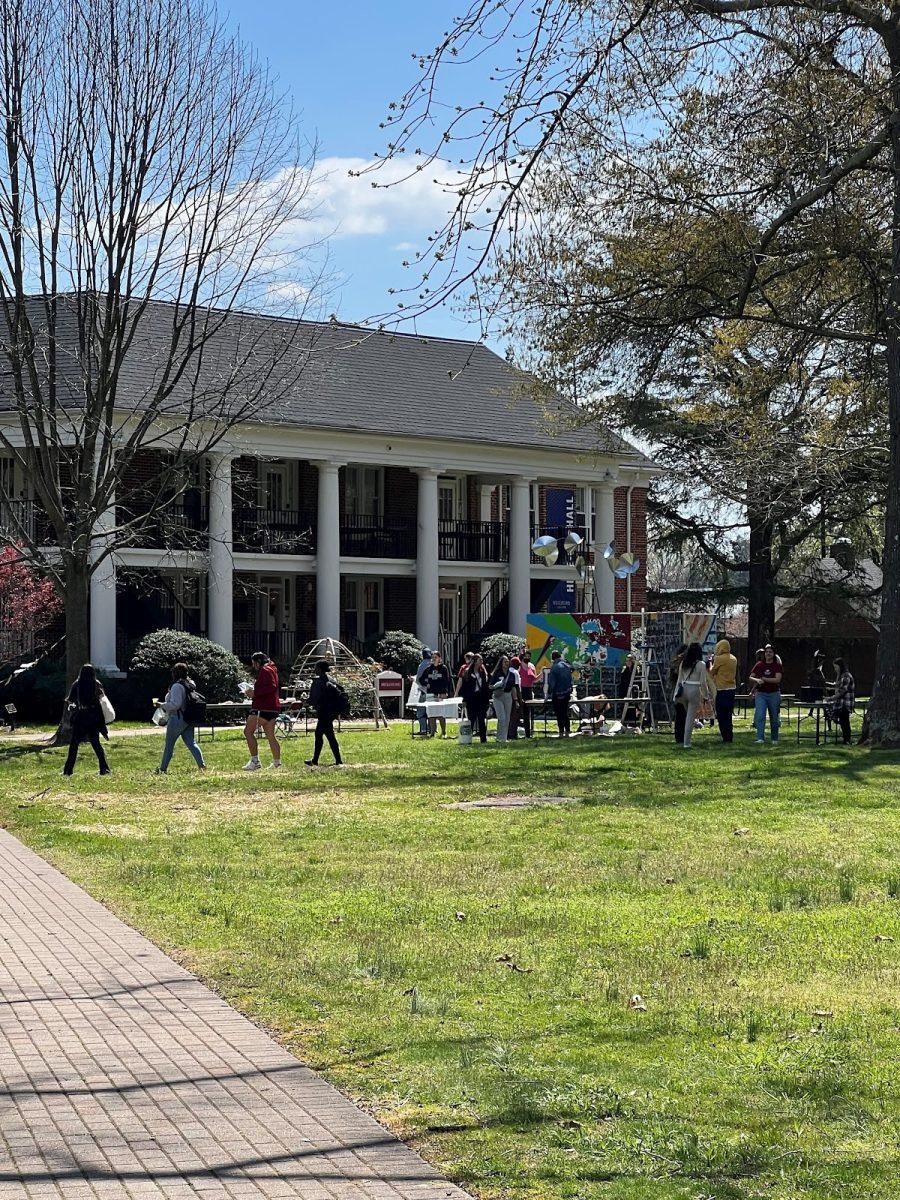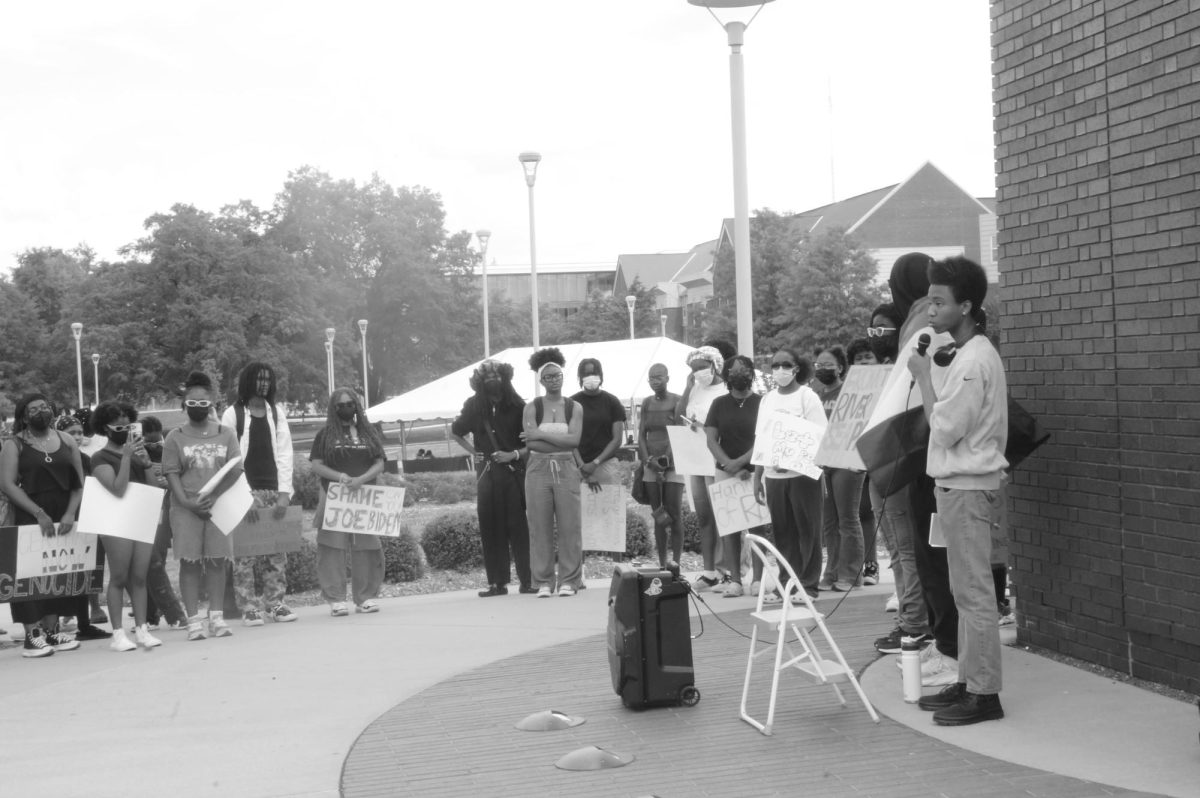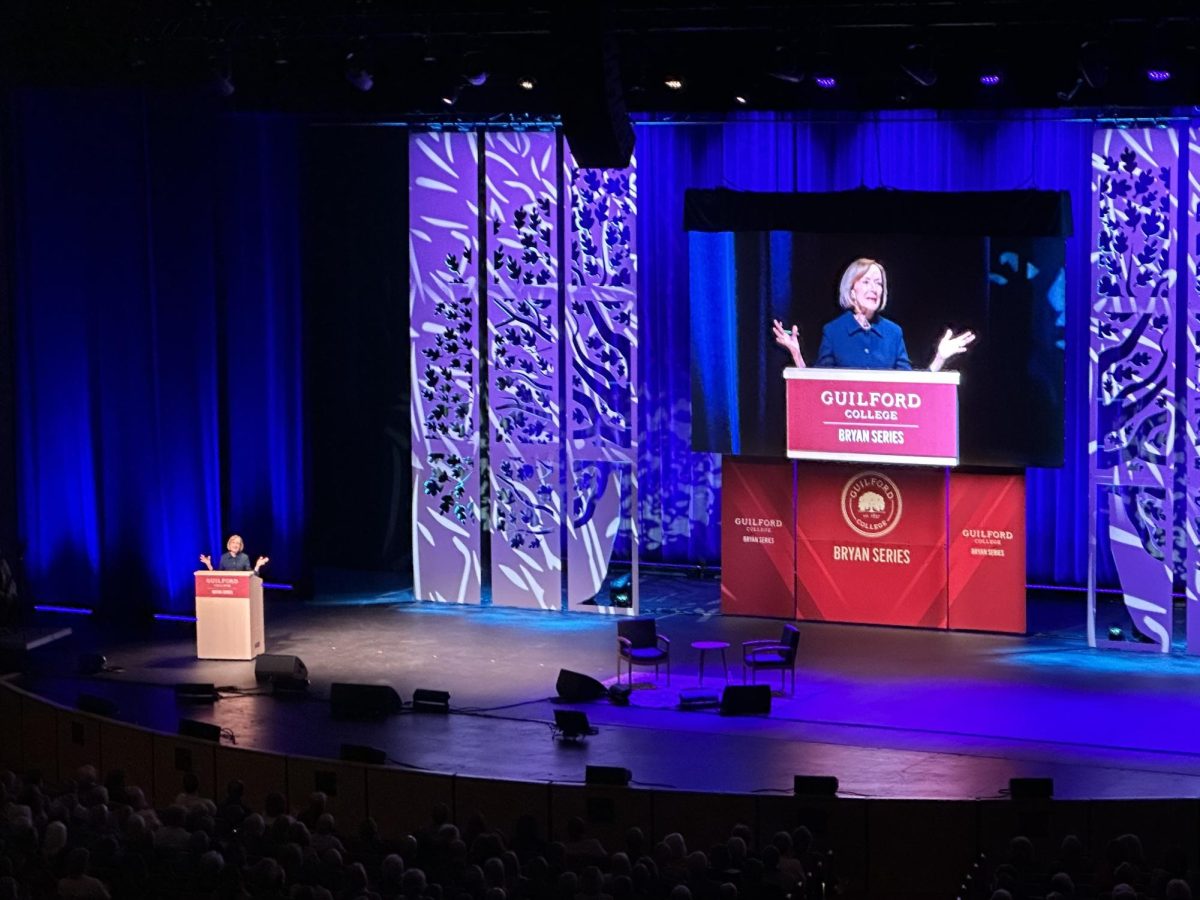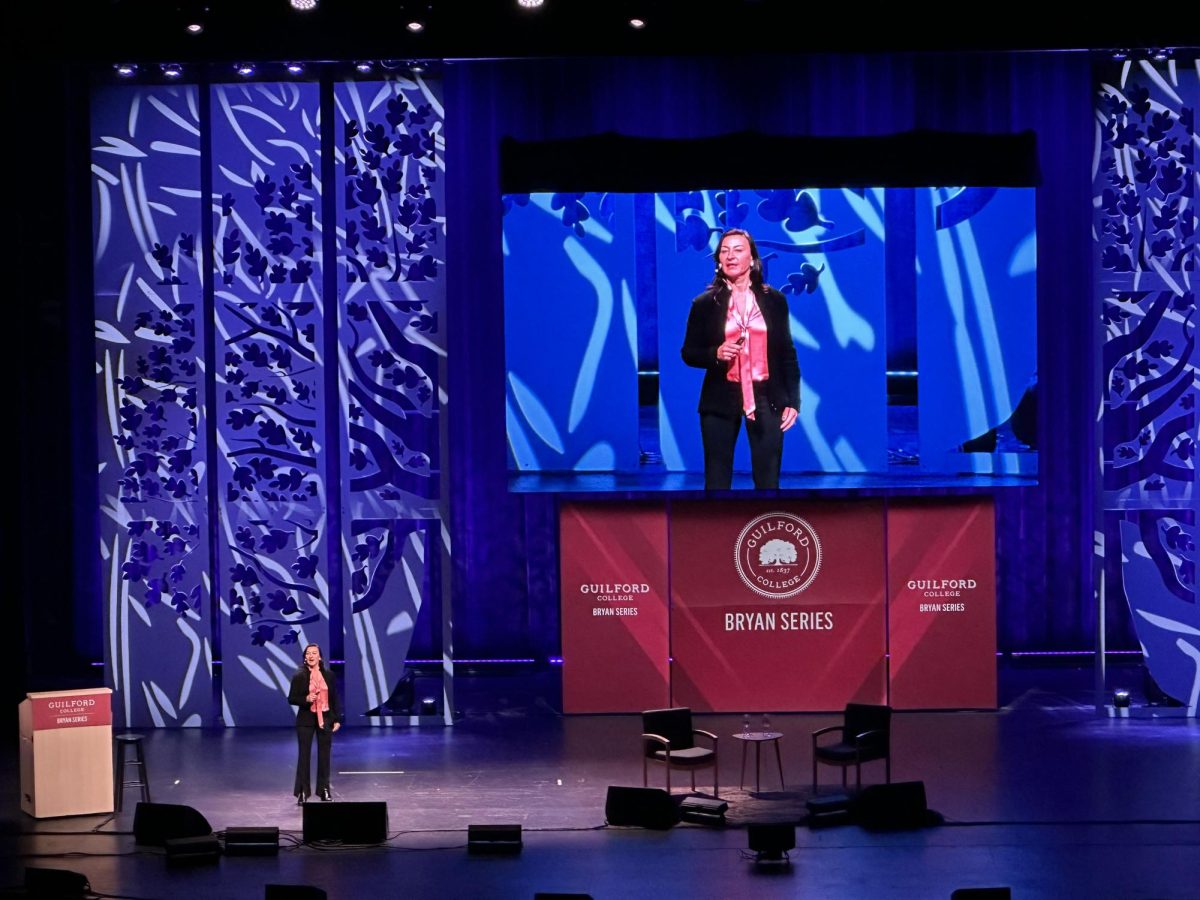“A lot of times, you have no idea what’s happened to your loved ones — where they’ve been taken, for how long (or) what they’re accused of,” said senior Sarah Barnett, a Baha’i student at Guilford.
For Baha’is in Iran who has been charged with the crime of education, the scene Barnett describes is the current reality.
Since the political revolution of 1979, the Iranian government — a theocracy in which the Shia Islamic clergy rule — has been systematically oppressing Baha’is by imprisoning, torturing and even executing any who seek a higher education.
These actions directly violate Article 26 of the U.N. Universal Declaration of Human Rights, and Amnesty International believes that international pressure can help bring an end to these injustices.
To raise awareness of this issue, Barnett and first-year and fellow Baha’i Heather Nelson organized a screening of Amnesty International’s documentary “Education Under Fire” on Feb. 2.
The documentary focuses on the history of the Baha’i Institute for Higher Education, founded in 1987 in response to the government oppression of Baha’is. At its inception, the institute served fewer than 100 students, who would secretly gather in professors’ apartments where makeshift classrooms awaited them.
Eventually, students and faculty acquired a building in Tehran in which to conduct their education. Despite efforts to avoid unwanted attention, the BIHE endured government raids in 1998 and again in May 2011.
“(The government) confiscated books, materials and computers,” said a man in the documentary. “(They) arrested the person who was in charge and put a lock on the building so no one could go back.”
Government officials raided the homes of professors and students, imprisoning those with a connection to the institution. Some received sentences as high as 20 years under the charge of education. Some were executed, including a 16-year-old girl.
“We should respect other religions and everybody must be allowed to express themselves however they want to as long as it doesn’t affect or harm anyone,” said first-year Lesley Manuh after the film.
A conversation panel followed the film, featuring Roya Tooloian, a Baha’i who grew up in Iran and sought educational freedom in the United States; Jeremy Rinker, visiting assistant professor of peace and conflict studies; and John Michael Justice, a Baha’i member of the Greensboro community.
Tooloian spoke of escaping Iran to attend college in America, where she worked hard to afford the tuition of an international student, which can be triple or quadruple the amount that a country resident pays.
Rinker explained how the Baha’i faith, once considered to be a splinter group of Islam but now formally considered its own world religion, may have become a target for government oppression.
“This kind of sectarianism is seen as dissent from the official state religion,” said Rinker. “The mere fact of practicing this faith becomes seen by the Iranian officials as dissent against the state.”
Justice invited event attendees to join the “Drive to 25,” a petition of sorts which can be accessed on the official campaign website, educationunderfire.com.
“You can send an automated letter to seven officials within the Iranian government … calling on them to desist from the active and systematic persecution of the Baha’i community,” said Justice.
The Drive to 25 campaign hopes to garner 25,000 signatures. The only information required to sign is an email address — adding a name is optional.
Nelson also hopes “that Guilford will open their doors to BIHE credit, that (Baha’i) students can transfer and have the option of going to this school as well.”
“(BIHE students) really love to learn,” said Tooloian. “They really, really want to do something for mankind, not to become successful. … They just want to become better human beings and be knowledgeable and help someone.”







Ronnel • Mar 14, 2012 at 11:30 pm
It’s wonderful that there is this grnoiwg consciousness within Iranian society about the plight of their Baha’i compatriots. Even more gratifying to know that when organizations such as united4Iran speak up for Baha’is, they are doing so under their own initiative, not through any direct instigation by Baha’is. In other words, the people of Iran can and MUST be allowed to claim ownership of this nascent social revival. Albeit, it is the exemplary conduct and demonstrable innocence of the persecuted Baha’is that has been key in pricking the Iranian national conscience; motivating grass roots movements such as united4Iran into action in their defense.Needless to say, any direct action by Baha’is themselves in this field must be conducted under the explicit guidance and instruction of the institutions of the faith- with whom rests the sole responsibility of defending the Friends in the cradle of the faith. Regards – Fardin